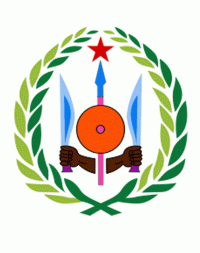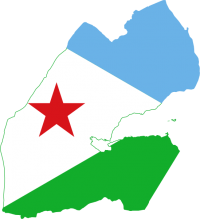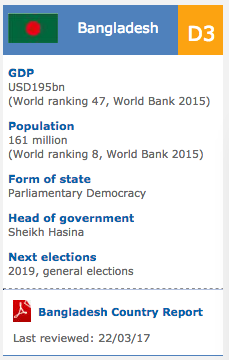Djibouti: Djibouti City
2012/12/16

Djibouti City is the capital and largest city of Republic of Djibouti in the Horn of Africa. Two thirds of the country's population live in the town. The city is situated on the coast, on the Gulf of Tadjoura right across from Yemen.
Local features include beaches along its eastern shore and the large Central Market, the national stadium Stade du Ville, the Presidential Palace and Hamoudi Mosque. On account of its numerous exotic buildings and structures, the city has been likened to a European settlement and described as a "French Hong Kong in the Red Sea".
Djibouti has the status of both a city and a state. It is also the seat of the Intergovernmental Authority on Development (IGAD) as well as several other continental and international organizations.
Djibouti is a multi-ethnic city. It has a population of around 604,013 residents, making it the largest city in the country.
Although all ethnic groups are represented in the capital. The main languages are Somali and Afar. Arabic and French are also widely spoken and understood. In the colonial period, European expatriates, primarily French, would also contribute to the city's population. Most local residents are Muslim adherents, with a minority Christian representation.
The Djibouti Region is one of the six regions of Djibouti. The region borders the Gulf of Tadjoura to the north and east, and the Arta Region to the south and west. The Djibouti Region is the smallest province in the country, but also the region with the highest population. It contains Djibouti's capital, Djibouti City.
- Related Articles

Africa's Relationship With China Is Ancient History
2017/07/02 In 2002 South Africa's Parliament unveiled a digital reproduction of a map - of China, the Middle East and Africa - that some speculated could be the initial map of the African continent. The Da Ming Hun Yi Tu - the Comprehensive Map of the Great Ming Empire - was drawn up around 1389 during the Ming Dynasty, according to historian Hyunhee Park.
Africa: Making Things Happen at the Bank - 'Not a Talk Shop' - Akin Adesina
2017/07/02 Dr. Akinwumi Adesina is focusing on five areas to achieve the African and world goals for a prosperous continent since becoming president of the African Development Bank - Africa's major public financial institution in September 2015. He was a keynote speaker at this month's Corporate Council on Africa's U.S.- Africa Business Summit in Washington D.C. and moderated a lively panel with five African government ministers. He as well received the Gene White Lifetime Succcess Award from the World Child Nutrition Foundation. This week, he was named the 2017 recipient of the World Food Prize, a prestigious honor that includes a $250,000 award. In an interview in Washington, DC, Adesina discussed the Development Bank's ambitious schedule and his vision for attracting the increase capital Africa needs. Posting questions for AllAfrica was Noluthando Crockett-Ntonga.
Climate change laws around the world
2017/05/14 There has been a 20-fold increase in the number of global climate change laws since 1997, according to the most comprehensive database of relevant policy and legislation. The database, produced by the Grantham Research Institute on Climate Change and the Environment and the Sabin Center on Climate Change Law, includes more than 1,200 relevant policies across 164 countries, which account for 95% of global greenhouse gas emissions.
Djibouti Outlook for 2016-17
2016/05/30 The country (Djibouti) is situated in Eastern Africa and is bordering the Gulf of Aden and the Red Sea, between Eritrea and Somalia. It has borders with Eritrea for 109 km, Ethiopia for 349 km and Somalia for 58 km. Land in Djibouti is coastal plain and plateau separated by central mountains. The climate is desert, torrid and dry. Djiboutian(s) speak French (official), Arabic (official), Somali, Afa
Economic cooperation and trade made new achievements.
2015/10/02 In 2013, the friendly relations and cooperation between the People's Republic of China and the Republic of Djibouti continued to maintain the sound momentum of increase. The two nations maintained close political exchanges. In March, President Ismail Omar Guelleh sent a letter of congratulations to President Xi Jinping on his election as President of China. In April, President Guelleh sent a letter of condolences to President Xi on the earthquake in Lushan County, Sichuan Province. In April, Ai Ping, Vice Minister of the International Department of the CPC Central Committee, visited Djibouti.
- Djibouti News
-
- BOTSWANA: Children on the move from Africa do not first aim to go to Europe, new UNICEF study shows
- BOTSWANA: WHO lauds Africa’s progress in malaria, HIV control
- BOTSWANA: South Africa plays an active role in the AU
- BOTSWANA: Africa: How to Adapt to Beat Crippling Droughts
- BOTSWANA: Africa: Expanded Engagement for Caterpillar - Boosting Sales & Alleviating Poverty
- BOTSWANA: WHO Africa Health Forum App Leads the Way
- Trending Articles
-
- QATAR: Qatar focuses on preventive care in new national health strategy
- UNITED STATES: EU's Juncker says ready to retaliate if needed over new U.S. sanctions on Russia
- ARGENTINA: Brazil, Argentina prosecutors say governments interfering in Odebrecht probe
- EUROPEAN UNION: Britain's Brexit Minister David Davis has begun negotiations on the country's divorce from the EU
- ARGENTINA: ARGENTINA: Country Reaches Deal To Export Lemons To Mexico
- CHINA: Why China and Russia will be best frenemies forever












